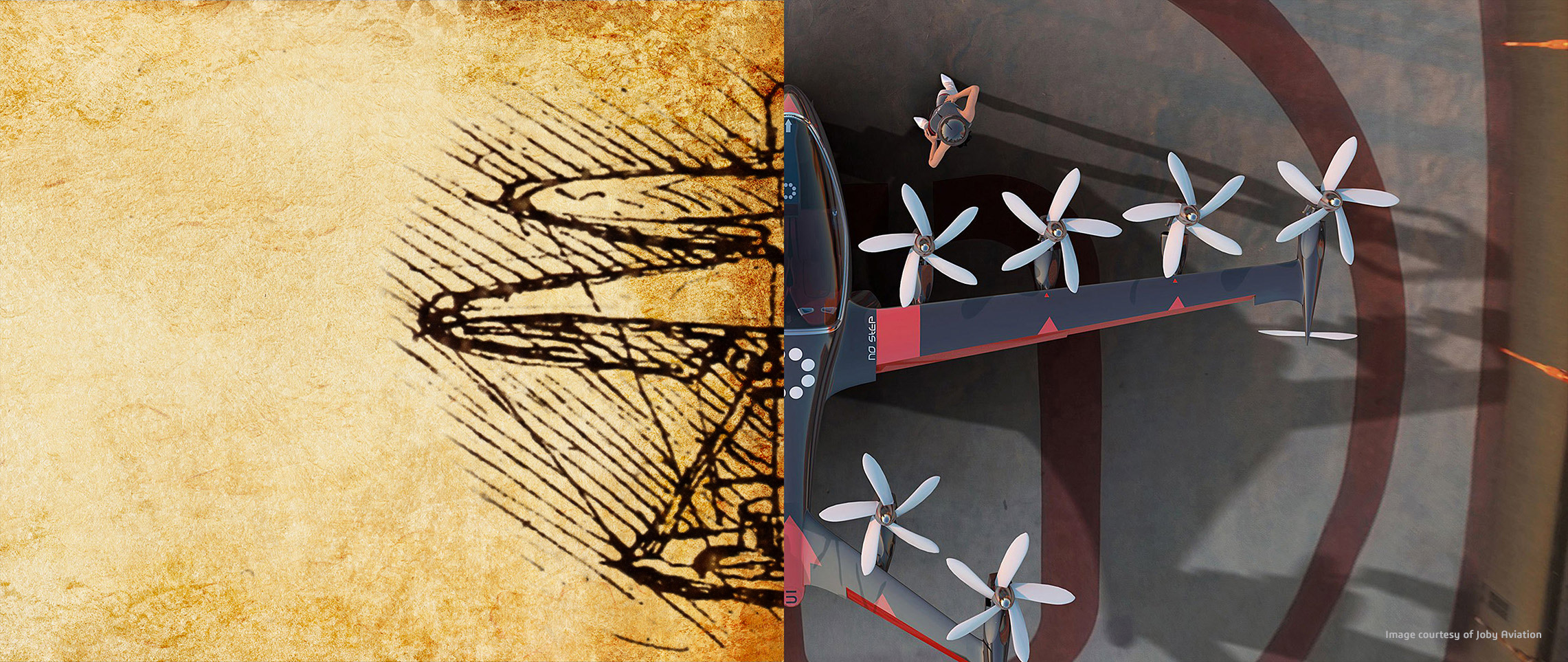Industry Renaissance
The New Book Is the Experience
A profound societal transformation is underway on a scale not seen since the great European Renaissance. Then, Gutenberg’s printing press made books – and the knowledge they contained – available to all.
Today, the new book is the experience, enabling an Industry Renaissance that is shaking all sectors of society with new ways of inventing, learning, producing and trading.
Are you ready to join the Industry Renaissance?
We’re experiencing a global Industry Renaissance today, bringing new ways – real and virtual – of seeing the world, inventing, learning, producing and trading. Tomorrow’s game-changers will not be those with the most automated production systems, but those who build a culture of knowledge and know-how to reveal and train the Workforce of the Future, able to solve the challenges of a planet lacking sustainable solutions.
Industry Renaissance
The Rebirth of Industry
Sweeping change is occurring all around us. Powerful platform companies with no physical assets – Amazon, Google, Alibaba and more – have become full-fledged industry players, inventing autonomous vehicles and voice-activated assistants that are radically changing the way we live.
In fablabs around the world, anyone can create a smart, connected object in just a few hours. Startups Uber and Airbnb have disrupted entire industries. Time-honored firms like Boeing are reinventing themselves with new, service-driven business models.
Collectively, this shakeup is nothing short of a global Industry Renaissance, a transformation in which virtual worlds on virtual experience platforms map, extend and improve the real world, enabling humanity for the first time to simultaneously imagine, model, engineer and control entirely new environments.
Transforming invention, learning, production and trade
The Elements of Industry Renaissance
New categories of industry
Industry Renaissance is enabling new categories of industrial firms to create new categories of solutions for new categories of customers. From air taxis to data-driven crop science, the power of virtual worlds created and managed on virtual platforms is enabling entire new business models that delight customers with previously impossible experiences.
Slovakia-based AeroMobil, for example,is taking preorders for a vertical-takeoff flying automobile, a new category of mobility that combines the best of automotive and aviation. That combination, in turn, allows the company to attract an entirely new category of customers – automotive pilots – with an entirely new experience previously available to a select few: on-demand air transportation.

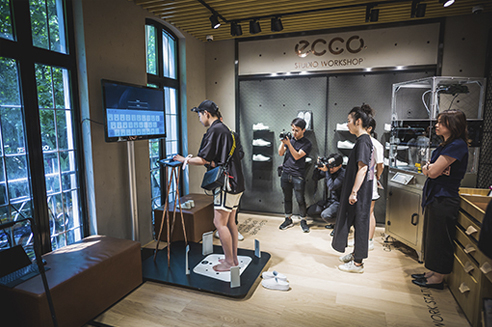
Danish shoe firm ECCO has used its digital experience platform to produce comfort-enhancing, stride-correcting shoes customized to an individual customer’s feet in less than an hour. The experience puts ECCO at the crossroad of the fashion (footwear) and life sciences (orthotics) industries, creating the potential to entire entirely new markets serving new arrays of customers.
German agricultural equipment maker CLAAS uses its virtual experience platform to create an online virtual world where farmers will soon be able to test-drive new equipment, generating insights for the company’s next generation of products. After customers buy, IoT-connected devices on their harvesters and combines transmit data that CLAAS can sell to other agricultural firms.
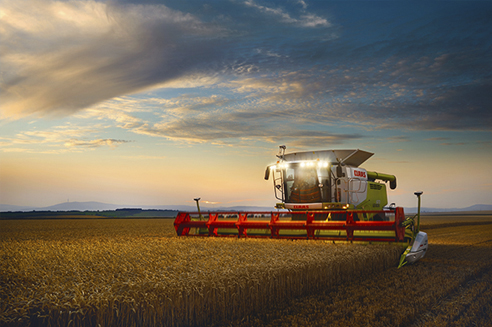
Knowledge and Know-How
Rich and accessible knowledge and know-how are the new keys to success, determining humanity’s capacity to invent innovative and sustainable solutions that address previously intractable global challenges. The ability to access and apply knowledge and know-how at hyper-speed is the new prerequisite for survival, and virtual worlds on virtual experience platforms deliver.
Kreisel Electric, an e-mobility startup founded to develop batteries for electric vehicles, realized that the nascent industry needed a drive train optimized for electric motors. Kreisel used its virtual experience platform to assemble a virtual ecosystem of industry experts worldwide to collaborate on designing one.

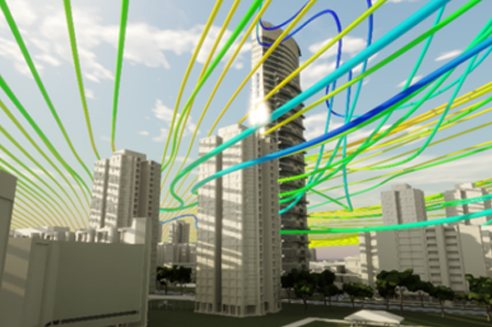
Virtual Singapore is a scientifically accurate 3DEXPERIENCE twin that replicates the entire island state. The nation’s different agencies can use this virtual world to recognize and benefit from synergies among their activities and to simplify their interactions with members of the public.
A. Zahner uses virtual worlds on its virtual experience platform to perfectly plan, manufacture and install complex architectural exteriors. “With old-world techniques, the time it would take to continuously reiterate whether this [shape] would meet structure requirements, material requirements and manufacturing ability would take forever,” founder Tom Zahner said.
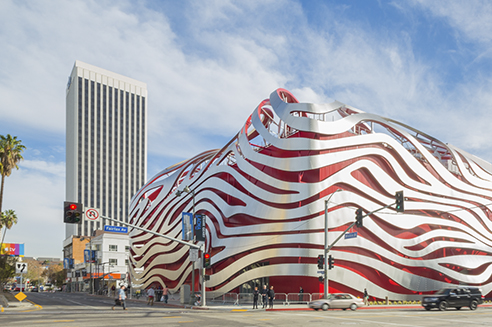
Workforce of the Future
Success in the 20th century was built on foundations that could not be sustained: a limited number of processed raw materials, limited amounts of knowledge, and an economy in silos. To break these limits, 21st century Industry Renaissance companies are using virtual worlds on virtual experience platforms to give employees ready access to the knowledge, know-how and collaborative abilities to imagine, test, create and operate holistic experiences in both the real and virtual worlds.
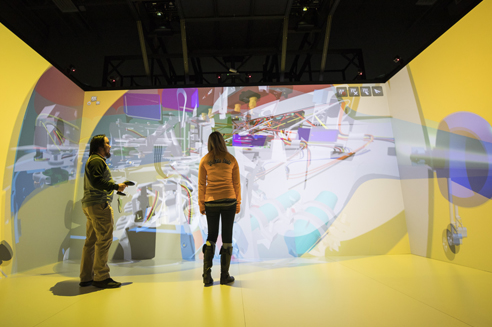
In Wichita, Kansas, John Tomblin, executive director of the National Institute for Aviation Research at Wichita State University, heard from an aerospace executive who complained his firm was investing two full years in training new engineering graduates in computer-aided design, engineering and manufacturing. “We want it down to zero,” the executive said. Wichita State responded by creating an experience-based learning program that trains students on the 3DEXPERIENCE platform, then puts them to work at multiple aircraft manufacturing sites around Wichita. “It’s applied learning for 3D design experience and knowledge of digital transformation software,” Tomblin said.
China-based Yellow River Engineering Consulting trains its Workforce of the Future by capturing the knowledge of existing employees for reuse by their peers today and in the future via its 3DEXPERIENCE platform. “By coding professional knowledge into specific design processes and decomposing buildings into components that can be reassembled into buildings through engineering templates, the knowledge and know-how about buildings can be captured and continuously updated on the platform,” said Shunqun Yang, leader of the company’s Engineering Academy. “In this way, the loss of knowledge and know-how caused by worker turnover can be avoided and the learning curve of new employees can be shortened.”
Six steps for finding the skills companies need in fast-changing markets
Dassault Systèmes: Catalyst and enabler of Industry Renaissance
Today, knowledge can be experienced, and no one has done more to enable this exciting new world than Dassault Systèmes. Through our 3DEXPERIENCE platform; 3DEXPERIENCE Marketplace; our innovative value network of 3DEXPERIENCE Lab startup accelerators and 3DEXPERIENCE Centers; our global leadership in educating the Workforce of the Future; and 30 years of leadership in creating multidisciplinary, multi-scale solutions for a sustainable future, Dassault Systèmes is the world’s leading catalyst and enabler of Industry Renaissance.
